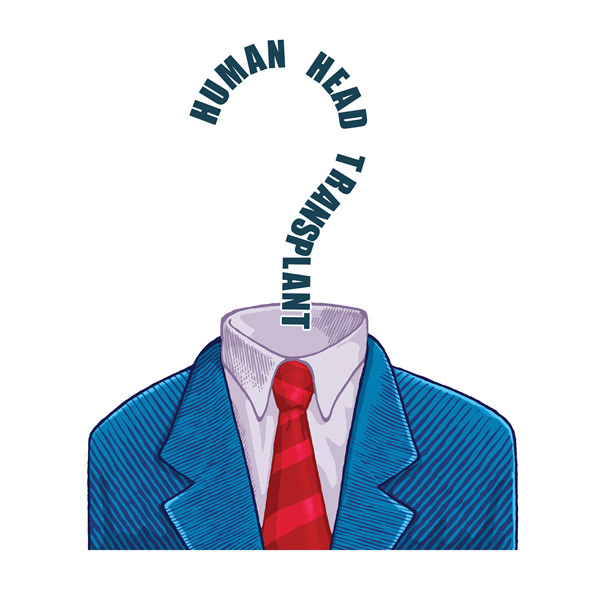Transplants must be strictly supervised
By Zhang Zhouxiang | China Daily | Updated: 2017-11-25 10:26
 |
| Zhai Haijun / For China Daily |
Should not call it a 'surgical operation'
It is misleading to call what Canavero and Ren have done a "surgical operation". "Surgical operations" are done on living human beings or animals to help sustain life or improve the patients' physical abilities. "Transplanting" the head of one corpse on the body of another should more properly be called "dissection".
Besides, Canavero claimed the 18-hour "operation" showed it is possible to reconnect the spine, nerves and blood vessels, without mentioning whether he had succeeded in doing so on the corpse.
In practice, the most difficult part of transplantation is not in repairing blood vessels or muscles, but in reconnecting the nerves and reactivating them, so that the signals from the brain can be transmitted through the reconnected nerves. Unless there is a breakthrough in reviving the impaired nerves, it would be irresponsible to do such an "operation".
Canavero also said it is "imminent" that his team will try to transplant the head of a living person paralyzed from the neck down. According to medical ethics and standards, enough tests and trials should be conducted on animals before trying out a new surgical operation on a human body. But Canavero said he and his team conducted only a few tests on animals. For example, last year his team successfully grafted a monkey's head on the body of another monkey, but Canavero has not revealed the total number (of such "tests"). Nor has any medical authority claimed to have given approval for doing so.
Therefore, the attempt to do such an "operation" on a living person must be put under strict regulation. We may hold a more tolerant view toward experimental "operations", but when it comes to such operations on humans, professionals, the media and supervisors must all be cautious.
Wang Yue, a professor at the Institute of Medical Humanities, Peking University
A highly complicated and dangerous affair
Canavero said he would transplant the head of a living human. Let us assume he succeeds in his efforts and the patient survives after the operation. The problem that will arise is: Who is the "new person"? Will he or she be identified with the head or the body?
Plus, the physiological, ethical, psychological and legal problems carry unprecedented complications.
Physiologically, the new person's mind (the brain) should control the body, but since the body would be that of another person, it might not respond accordingly. The result could be utter internal chaos.
Ethically, if the new person marries and begets children, whose DNA will the children inherit? And psychologically, the new person could develop a split personality, torn between the dictates of the mind and the calling of the body.
But none of the problems would be as troubling and complicated as the legal one. Whose identity should he/she inherit, the head's or the body's? Whose property should he/she inherit? Whose family would he/she belong to? Would the person get a new social security number, or should he/she use one of the two old ones?
Luckily, none of the above is likely to happen in the near future, because no medical authority is yet ready to grant approval for a head transplant on a living human. And I hope the medical authorities will be as cautious as they always have been, because such a transplant would create many, many more problems than solutions.
Zhang Tiankan, deputy chief editor of Encyclopedia magazine and a former medical researcher
























